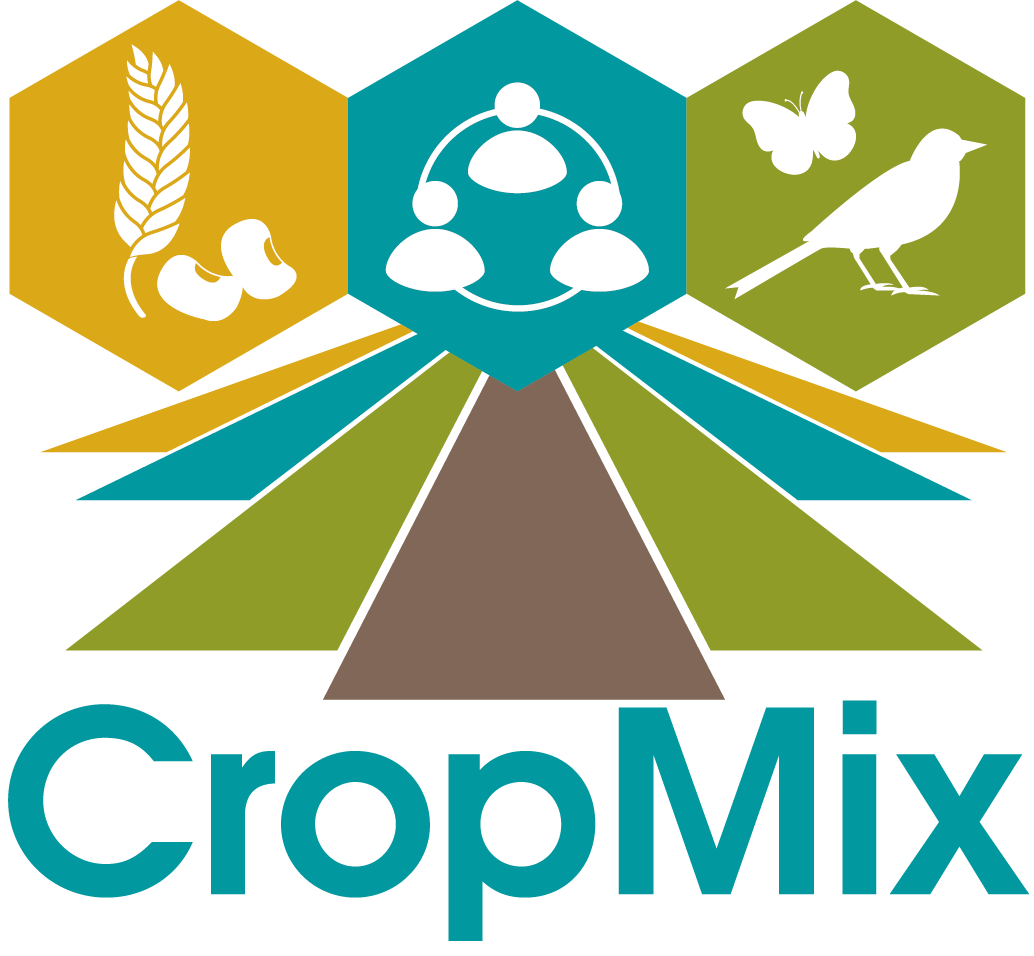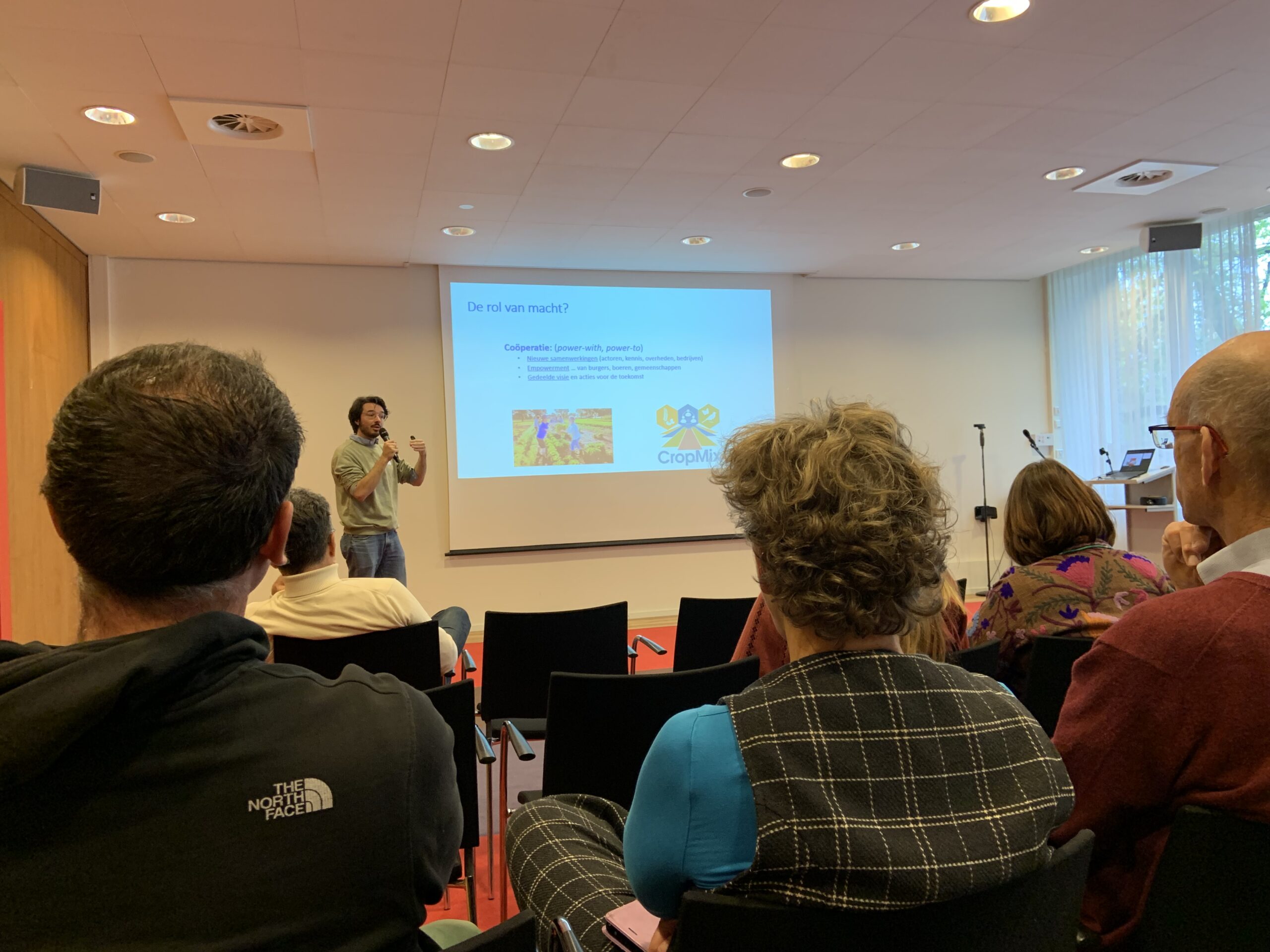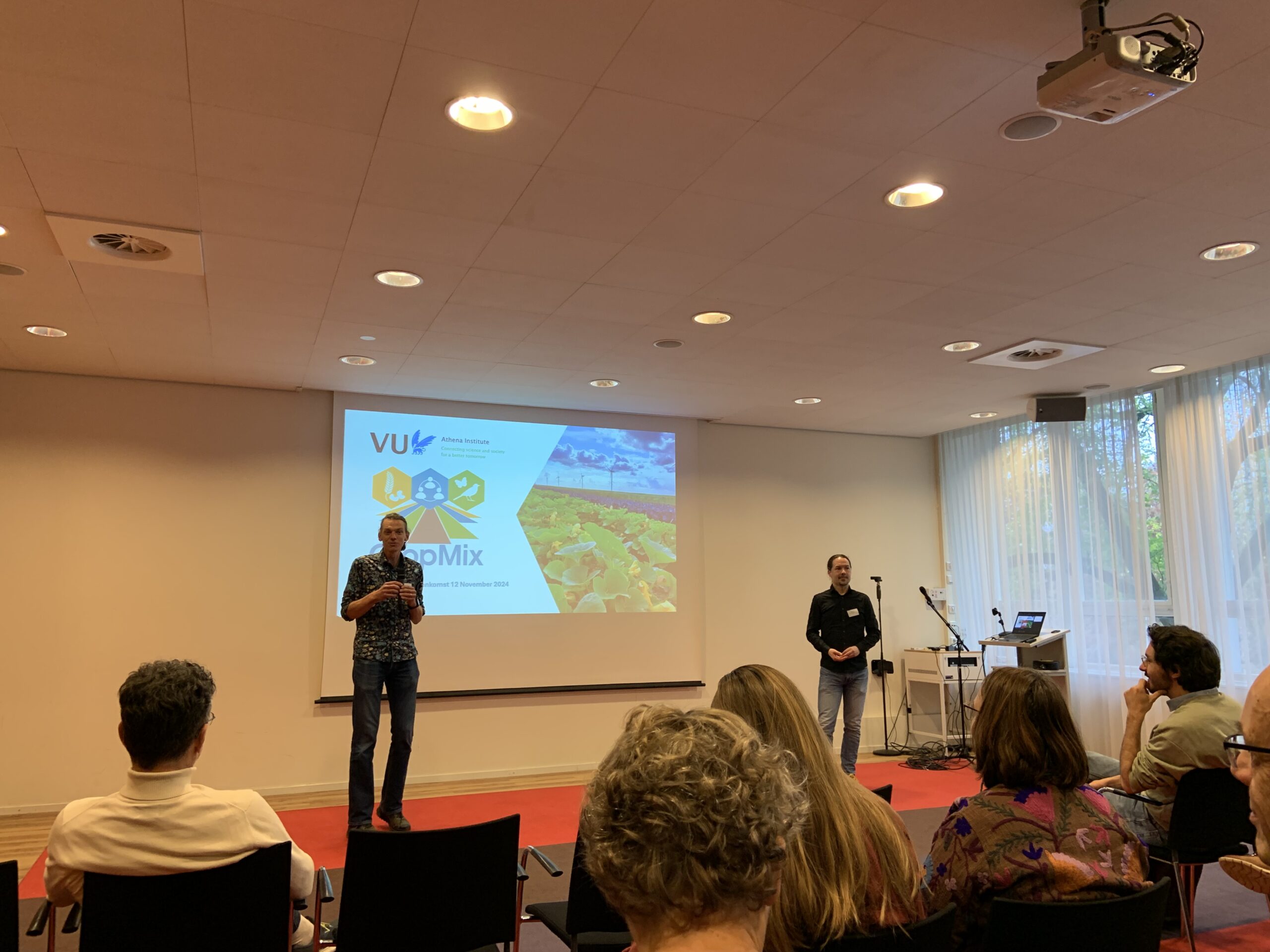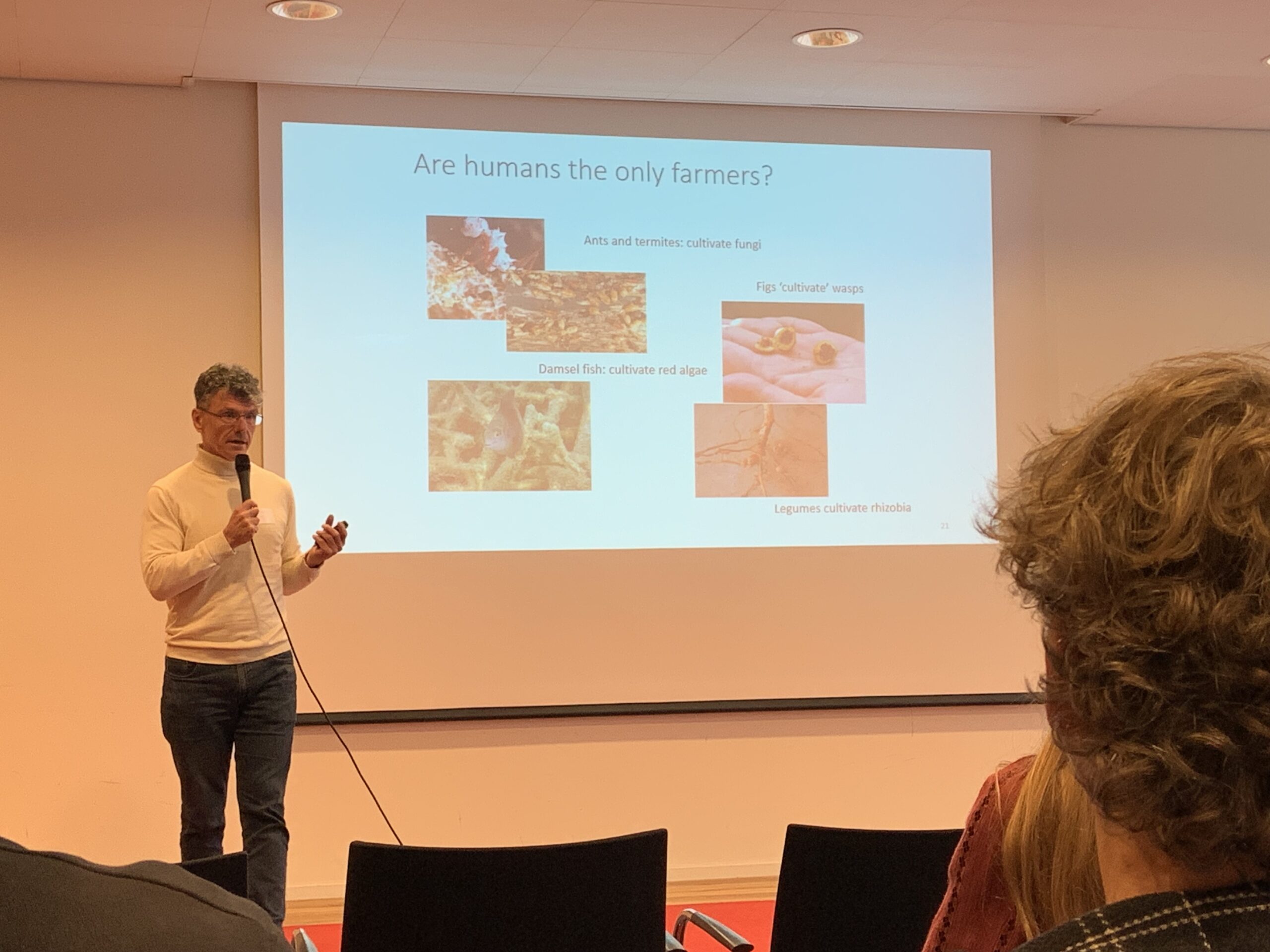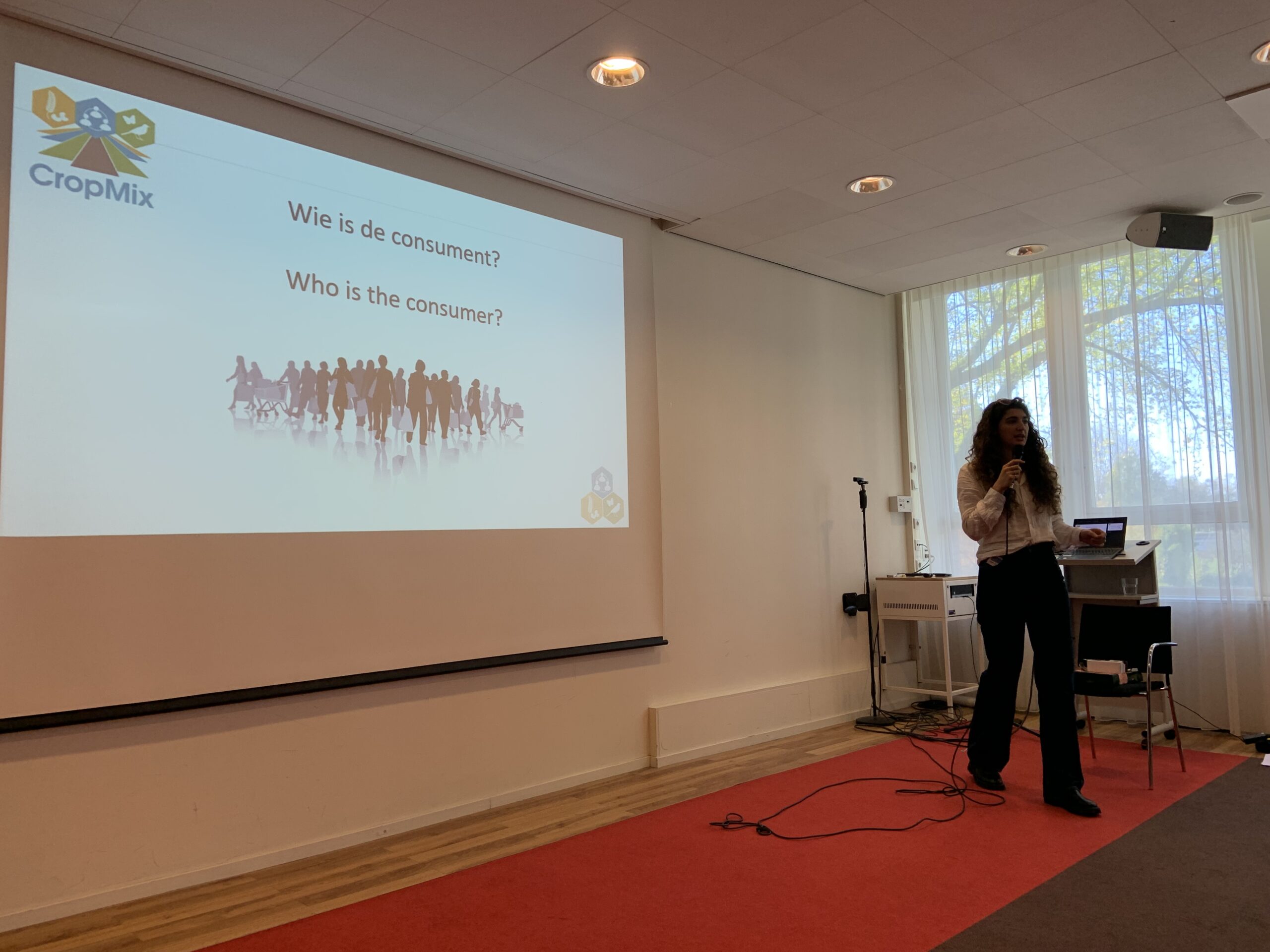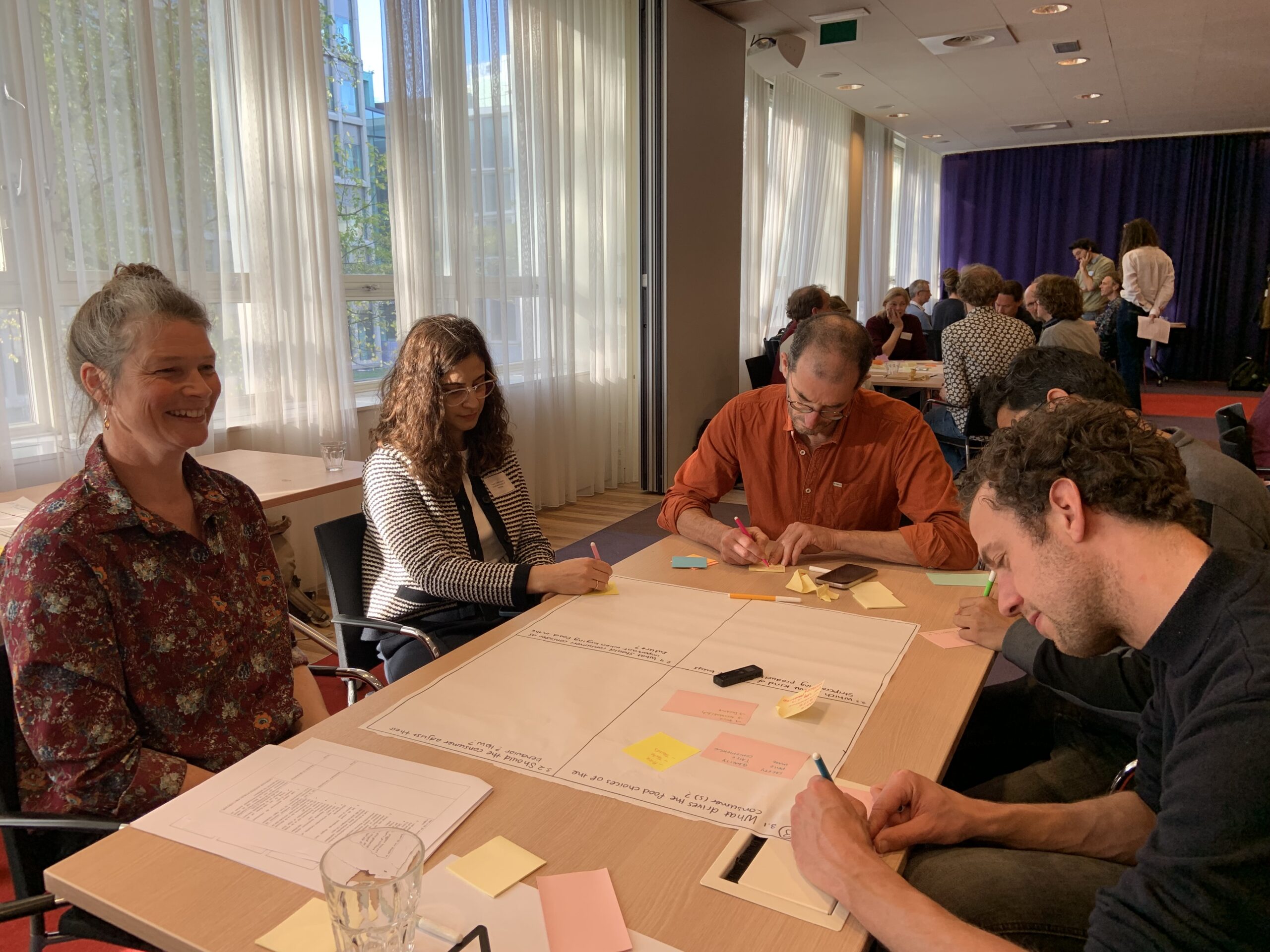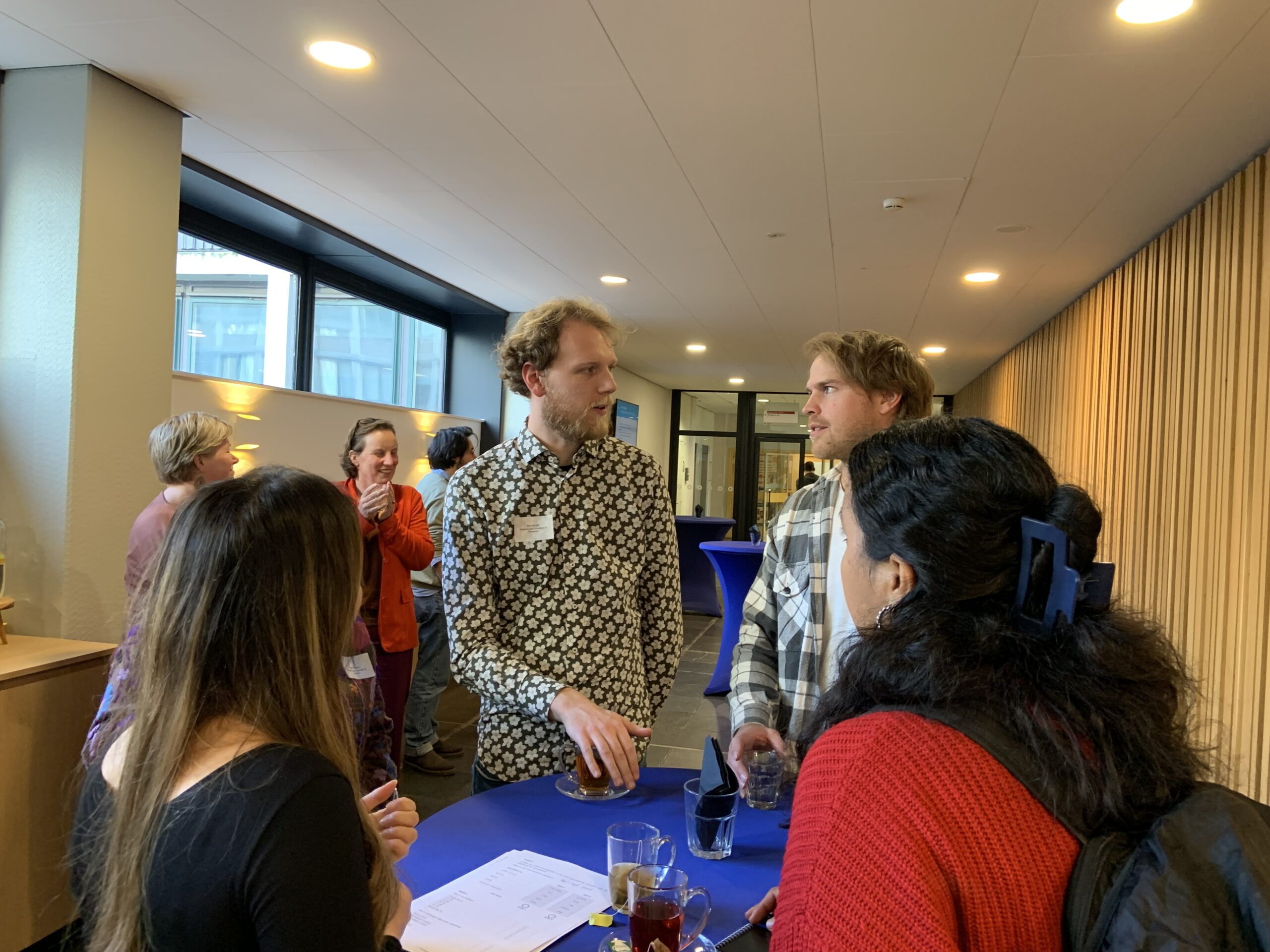On 12 November our consortium was hosted by the Athena Institute at VU University of Amsterdam. The meeting was themed 'cooperation and competition' and several PhDs presented their first findings. We also had a panel discussion on the living labs and PhD candidate Camilla Bodewes gave a workshop titled 'Who is the consumer?'
Kristiaan Kok (Athena Institute) and Niels Anten (WUR) opened the day around the theme ‘cooperation and competition’. Who is in control in our food system? What forms of power actually exist? Who has influence, directly or indirectly, and with whom do you cooperate to change the system? Kristiaan took us through different forms of power. Whoever can decide has power. Think of the minister of agriculture. But those who can set the (political) agenda also have power. Think of lobbying or protests. A more subtle form of power is letting the other person think they are making a certain choice themselves, which we all experience in the supermarkets, where the stores determine which selection of products we are served.
It also became clear that existing power structures perpetuate the current system. Some form of competition is therefore needed to go against the current system. To achieve this, different actors also need to work together. These include, for instance, different scientific disciplines (as in CropMix), but also cooperation between government and society, between chain partners, between farmers, between crops, and so on.
Niels Anten built on the idea that agriculture is about both competition and cooperation. Agriculture is a form of cooperating farmers working together with cooperating plants and animals. He showed us that some non-humans also engage in agriculture, such as ants growing fungi. Here too, power plays a role. A host (ant) nurtures a symbiont (the fungus) to benefit from it. Then, the way the host treats the symbiont also changes the symbiont's genetics. The host selects fungi with certain properties. People do this too, for example when breeding crops.
During the discussion, it became clear that power also plays a role in CropMix. Do we have the power to put something on the agenda? Or do we need other collaboration partners? Are we perhaps competing with other research programmes (for funding) or are researchers competing with each other? An interesting discussion that will no doubt continue in the future.
Next up was a panel discussion led by Anne Loeber (Athena). Four panellists talked about their experiences in the living labs. Helma Verberkt (Artemis) represented the living lab on biocontrol. Carla Overgaauw (RVO) joined in to talk about administrative barriers to strip cropping. Maria van Boxtel (Land & Co) took the floor as representative of the living lab on the advisory role of agricultural advisors, and finally, Marius Monen (Avans) joined in as representative of the living lab on machinery.

All four mentioned the value of bringing people with different expertise together in their living labs. It also became clear that the living labs deliver concrete results, such as student projects on sprinkler systems for strip cropping systems, a national agenda on biocontrol, articles in the trade journals on strip cropping, and actions within RVO to put the obstacles for strip cropping farmers on the agenda and to try to solve them.
We continued the morning with pitches from PhD candidates on their first results. Rik Waenink talked about measurements in the CropMix+ network where they measured the effect of strip cropping on yield, pest suppression and biodiversity. Chiara Boeri gave an insight into the results of her systematic literature review on the stages farmers go through in adopting innovations. Lisa Marijke van den Berg talked about her observations from interviews with farmers about their needs for machinery in strip cropping and, finally, Frank Harris talked about his experiment with insect frass (poo and residue) as a fertiliser and how it affects nitrogen uptake in the soil.
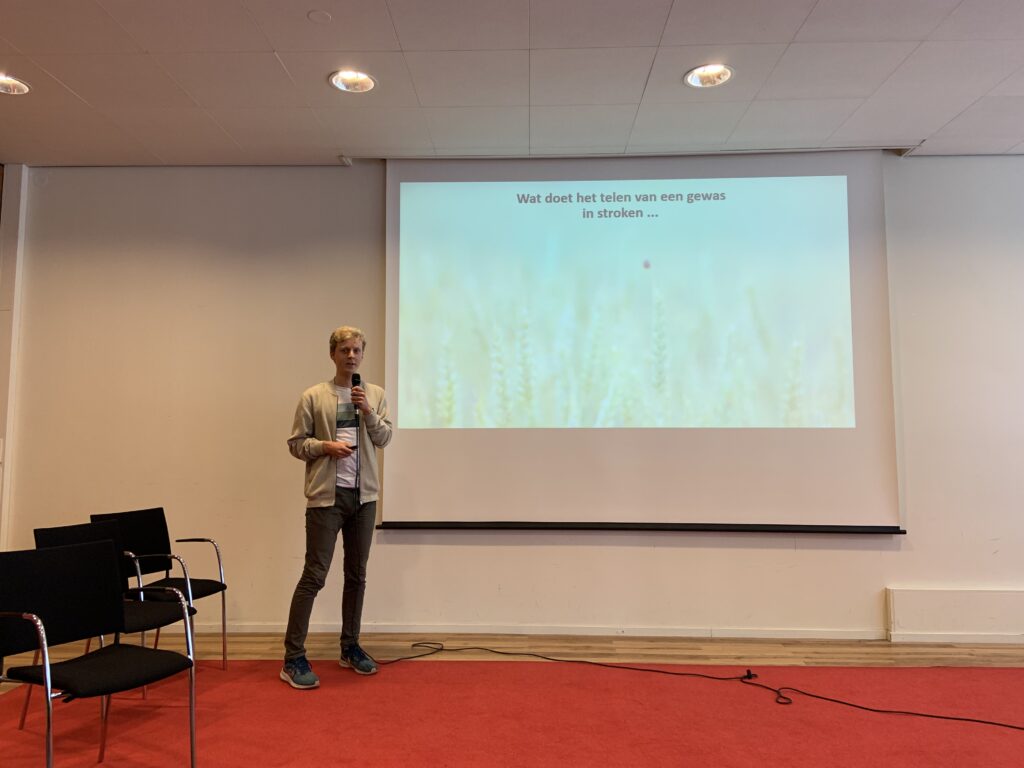

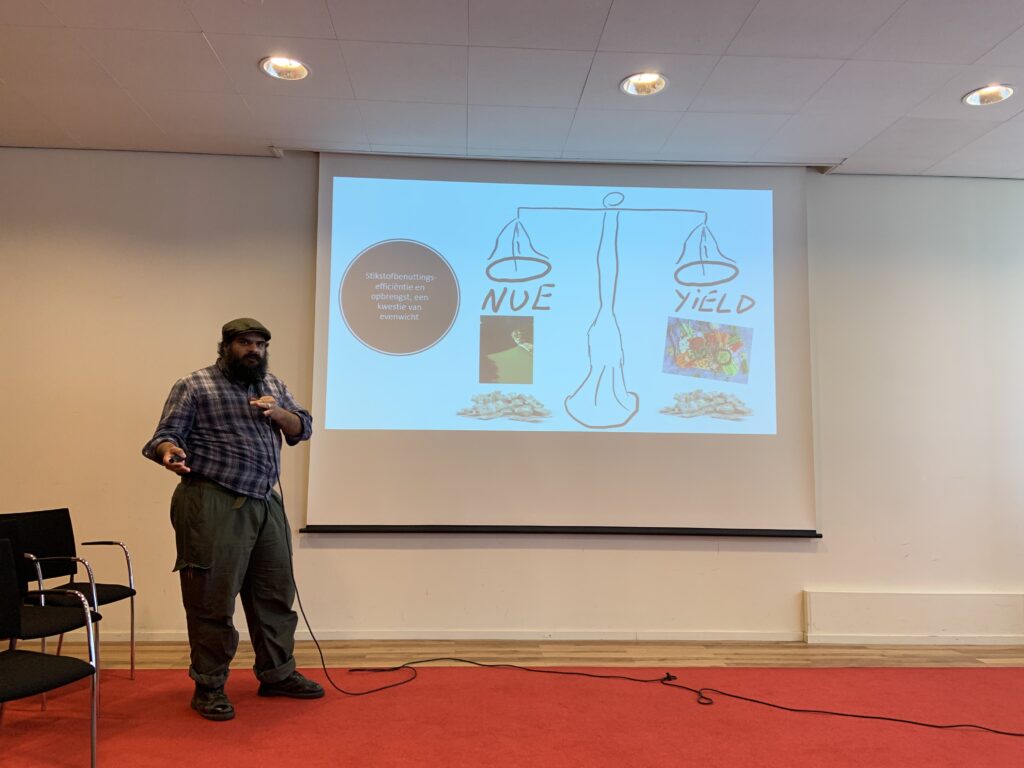
After lunch, we delved into the consumer perspective with a workshop by PhD candidate Camilla Bodewes. Who are consumers, what drives them and do they have a responsibility in the food transition? Tantalising questions that were lively discussed.
We concluded with three more pitches. Erik Poelman presented the work of Gabriele Bolletta, who was absent, on natural pest control and the effects of strip cropping. Thijmen van Loon presented his model that can help optimise biodiversity in a region by linking data from different farms. Yvonne Florissen closed with a presentation on the citizen science project MoestuinMix and its first results.
Thank you all for another interesting and thought-provoking meeting and special thanks to the team at Athena for organising this event!
